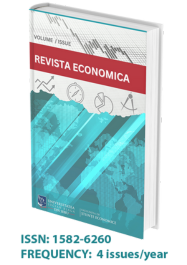
IDEOLOGY AND REPRESSION IN ROMANIA IN THE DECADE BEFORE THE ADOPTION OF THE PENAL CODE OF 1969.CASE STUDY: THE ECONOMIC CRIMINALITY AND THE APPLICATION OF CAPITAL PUNISHMENT
STANCU Radu, University of Bucharest
Abstract:
In terms of the death penalty, the first half of the communist period was very dynamic in Romania. Its start was dominated by the issue of dealing with war criminals, which often took a retributive form, a disguised way of punishing the fascists, former political rivals of the communists. In 1949, the legal provisions concerning capital punishment were extended to several economic and political crimes, intended to frighten a large part of the population. The zenith of this policy were the years 1958-1959, when the highest rates of executions of the whole period of 1944-1990 were registered. The leadership change usually determined a policy change regarding the death penalty, accompanied by a revision of the Penal Code. Gheorghe Gheorghiu-Dej, the Stalinist ruler of Romania died in 1965, when Nicolae Ceausescu became the new Secretary General of the Romanian Communist Party. This revision of the legal frame also took place in Romania, where a new Penal Code was adopted in 1969, increasing the accuracy of the legal provisions and opening, in foucauldian terms, a more refined era in the history of capital punishment.
Keywords: capital punishment, Romania, communism, death penalty, executions
JEL Classification:
Volume: 66, Issue: 6
Pages: 112 - 135
Publication date: , 2014
Download the article: http://economice.ulbsibiu.ro/revista.economica/archive/66608stancu.pdf
STANCU Radu, 2014, IDEOLOGY AND REPRESSION IN ROMANIA IN THE DECADE BEFORE THE ADOPTION OF THE PENAL CODE OF 1969.CASE STUDY: THE ECONOMIC CRIMINALITY AND THE APPLICATION OF CAPITAL PUNISHMENT, Revista Economică, Lucian Blaga University of Sibiu, Faculty of Economic Sciences, vol.66(6), pages 112-135,

All content is licensed under the
Creative Commons Attribution 4.0 International License (CC BY 4.0)
.








